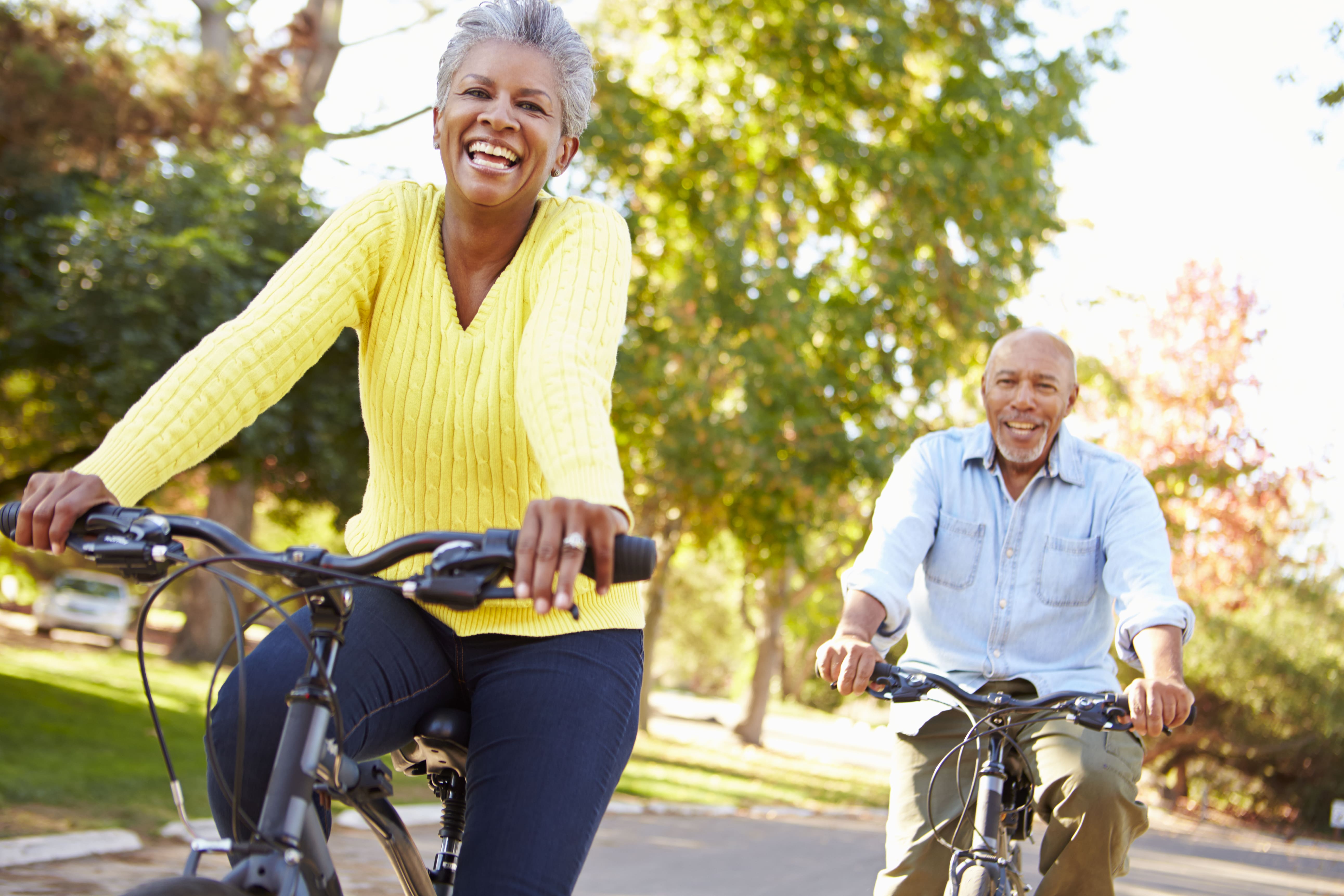Over Age 50 Useful Tips to Stay Healthy and Safe

As you become older, you’ll notice a lot of changes in your life, and you may need to make lifestyle modifications to maintain a healthy lifestyle. At any age, good health can be achieved by a combination of healthy food and regular physical activity. Some health problems, such as diabetes, heart disease, and some malignancies, can be avoided by making appropriate lifestyle choices.
From over age 50 you’ve accumulated a wealth of experience and have a lot to offer at this stage in your life. Taking a proactive part in preserving your health is more vital than ever to maintain a decent quality of life. It’s time to make sure you’re doing everything you can to keep healthy, active, and alive!
HEALTH TIPS
Healthy habits should have been instilled in you throughout your life. It’s never too late to start taking proactive efforts to preserve and even improve your health, even if you haven’t done so yet over age fifty. Small lifestyle adjustments can make a significant difference, and adopting even a couple of the following behaviors will get you started in the right direction:
-
Aim for daily moderate exercise
Maintaining a healthy level of physical activity can help counteract many of the negative impacts of aging. Regular exercise can enhance your balance, keep you mobile, boost your mood by reducing anxiety and sadness, and lead to better cognitive functioning.
-
Eat a healthy diet of fruits, vegetables, nuts, and lean meats.
Men and women over age 50 can minimize their risk of heart disease, type 2 diabetes, obesity, and certain types of cancer by eating a nutritious diet.
Healthy foods include fruits, vegetables, whole grains, and low-fat dairy products. Protein can also be found in lean meats, poultry, fish, beans, eggs, and nuts. It’s crucial to eat meals that are low in saturated fats, cholesterol, salt, and added sugars for heart health and weight loss.
-
Quit smoking
The good news is that quitting smoking will enhance your circulation, lung capacity, and energy levels regardless of your age. If you’re a current smoker, you should quit as soon as possible
-
Get a vitamin boost
Lots of people have a vitamin D deficiency and don’t know it. It’s estimated that it affects half of the adult population. Vitamin D deficiency has been linked to cognitive impairment, bone problems, and also cardiovascular disease.
-
Keep Healthy Weight
As you get older, your body changes. For example, if you are not as active as you should be, your muscles may not operate as well, affecting your strength. You may also consume fewer calories if you do not engage in any physical exercise. If you consume more calories from food or beverages than your body requires via physical exercise and daily living, the extra calories may be stored, resulting in weight gain.
-
Practice good sleep hygiene
Adults over age 50 should have between seven and eight hours of sleep each night, according to the National Sleep Foundation. As you become older, you may notice that your sleep cycle varies, making you sleepier in the early evening and ready to wake up earlier in the morning. If you’re suffering from chronic or acute insomnia, talk to your doctor, who may help you figure out what’s keeping you awake and offer treatments.
-
Stay Socially Active with Friends and Family and Within Your Community
Making an effort to interact with family and friends can have a variety of health benefits. According to a study published in the Journals of Gerontology, Series B: Psychological Sciences and Social Sciences in January 2019. Participants (all over 60) who reported higher levels of social activity were more likely to have more positive moods, fewer negative feelings, and higher levels of physical activity.
-
Don’t Neglect Yourself
Make a Checkup Schedule and Stick to It. Regular checkups with your doctor, dentist, eye doctor, and other specialists allow you to spot issues early and treat them before they become more serious.
-
Follow your doctor’s instructions for all medications
It may seem self-evident, but it’s worth repeating: you should always take any medication recommended by your doctor exactly as directed (or doctors). However, it’s also a good idea to have a regular medication review with your primary care physician to see if all of your medicines are still needed.
You Shouldn’t Ignore These Warning Signs
-
Sudden numbness or dizziness
-
Breathing problems
-
A feeling of pressure in your chest
-
Numbness or tingling, especially on one side of your body
-
Loss of coordination or balance
-
Having trouble speaking or swallowing
-
Sweating excessively
-
Blurred vision or sudden vision loss
-
Swelling, even if there have been no recent injuries
SAFETY TIPS
People over age fifty are the most vulnerable, with the highest mortality rate and severe injury. Safety is a fundamental duty for older individuals over the age of 50, both inside and outside the home, and there are a number of simple safety procedures that can help reduce the risk of accidents and abuse. Here are some safety tips to help you age in place in a more comfortable, safe, and enjoyable manner.
Home Safety
-
Put big numbers on your house that people can see from the street.
-
If you’re going to hide a spare key to the house, make sure you hide it completely. Never leave it in a predictable location, such as under the doormat.
-
Never open the door to someone you don’t know. If it’s a repairman or a salesman, check with the company they claim to work for.
-
Keep emergency numbers handy
Fall Prevention Safety
-
Remove any obstacles in the house that could pose tripping hazards, such as small floor rugs and objects on the floor, such as an oversized vase or magazine stand.
-
Increase the brightness of your house lighting while avoiding glare.
-
Have your eyes tested on a regular basis.
-
To develop flexibility and strengthen muscles and joints, begin exercising frequently, preferably with tai chi or yoga.
Car Safety
-
While driving, make sure all doors are locked and all windows are rolled up.
-
When returning to your car, take a look around as you approach it.
-
Even if you’re only leaving the vehicle for a few minutes, always lock the doors.
-
Park as near to your destination as possible.
Outdoor Safety
-
Keep an eye on the ground you’re walking on. Be cautious of wet or dry leaves, grass, and other slick surfaces.
-
Before standing up and walking after getting out of a car, check the ground for wetness.
-
To avoid tripping, use non-slip colorful tape to visually designate concrete or wooden edges.
-
Maintain the condition of outdoor steps and walkways by keeping them clean and free of debris.
Aging is an inevitable aspect of life. You may enjoy the benefits of growing older while still maintaining a high quality of life if you follow a few simple healthy behaviors to stay healthy over age 50
With prompt medical attention, many people survive serious medical problems and even thrive afterward if they take it as an opportunity to double down on living healthfully and meaningfully.
However, the elderly, particularly the frail elderly, are one of the most vulnerable categories of our society to accidents, especially in and around the house.
Accidents can be reduced by calling the attention of older individuals and their caregivers to danger places and harmful habits.
Related Posts
Should I Exercise Over Age 50?
Hey there! Just relaxing sounds pretty amazing, right? You may have time to travel, indulge…
03 November, 2021What Types Of Vitamins Are Good For People To Take Over Age 50?
Aging brings about wrinkles, diminished hearing, forgetfulness, and the emergence of gray hair. Amidst these…
03 November, 2021


